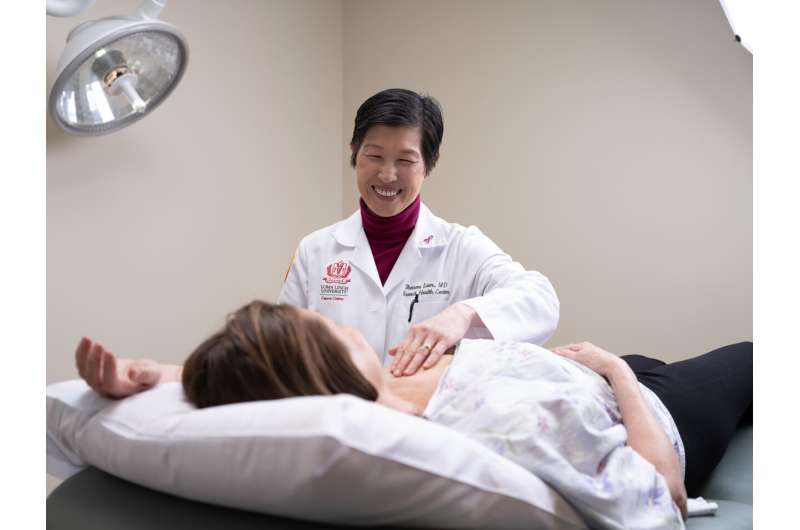Study identifies uptick in mammogram cancellations from early pandemic

The number of women who canceled their mammogram appointments increased in the early months of the COVID-19 pandemic before gradually decreasing to pre-pandemic baseline levels of cancelation, according to a Loma Linda University Health research study published this week by The American Surgeon. Study authors hope their findings will help breast cancer surgeons prepare to provide care to a potential surge of patients presenting with more advanced stages of breast cancer.
“From the oncology side, we’ve had this fear that people who don’t come in for their screening tests may eventually present at a much later stage of a cancer diagnosis,” says Sharon Lum, MD, chair of LLUH Department of Surgery and the study’s principal investigator. “That’s why we wanted to look at trends and possible explanations for mammogram cancelations during early pandemic months.”
Lum and other Loma Linda University Health researchers analyzed the quantity and patients’ reasoning behind mammogram cancelations at Loma Linda University Cancer Center from January 1 to August 31, 2020.
Cancelations dramatically increased, at one point even doubling in March. Reasons for canceling ranged from administrative issues to provider requests, COVID-19 related concerns, and unspecified reasons. The study found patients who withdrew their mammogram appointments for COVID-related issues reached an all-time high in April. The cancelations slowly decreased by August 2020 as restrictions eased.
Study authors related these trends with the timing of health organizations’ recommendations to delay elective procedures and certain health screenings. For instance, the governor of California issued a ‘stay at home’ order on March 19, while the American Society of Breast Surgeons and American College of Radiology released a joint statement recommending the postponement of breast screening studies, effective March 26, 2020.
Around the same time as this rise in mammogram cancelations, Lum and her colleagues also noticed patients’ increased use of MyChart, an electronic patient portal. Interestingly, patient use of MyChart continued to increase, even as mammogram cancelations eventually decreased over time—hinting to telehealth’s durability beyond the pandemic, Lum says.
“Every canceled mammogram is a missed opportunity to detect cancer,” Lum says. “We can leverage patients’ increased access to an electronic health portal to make up for those canceled screenings we observed and improve the recovery of different screening programs.”
Additionally, the study’s findings could help prepare breast cancer surgeons for the likelihood of encountering patients who canceled mammographies during the early pandemic and now present at a later stage of diagnosis. The findings call for cancer surgeons to rally and make ready resources, including multi-disciplinary care, Lum says. Surgeons may also face more challenges in presenting later-stage patients with breast reconstruction options, she says.
The study’s implications also speak to the broader medical community since physicians and researchers have noted similar drops in cancer screenings for colon and cervical cancer during the pandemic, Lum says.
The study calls for further research to accurately capture how missed cancer screenings during the pandemic is affecting cancer outcomes and potential upstaging. While these ongoing research efforts tease out these causal nuances, Lum urges women 40-years-old and over to schedule their mammograms as soon as possible.
“Knowing what we know now, and having tools at our disposal like a better understanding of virus transmission, testing, and vaccinations that we didn’t have at that time, allows us to safely mitigate the risk of exposure to COVID as women come into the facility,” Lum says.
All care team members wear masks and possess proof of negative tests or vaccination, while all patients undergo a COVID-19 screening before entering the facility, she says.
Source: Read Full Article
